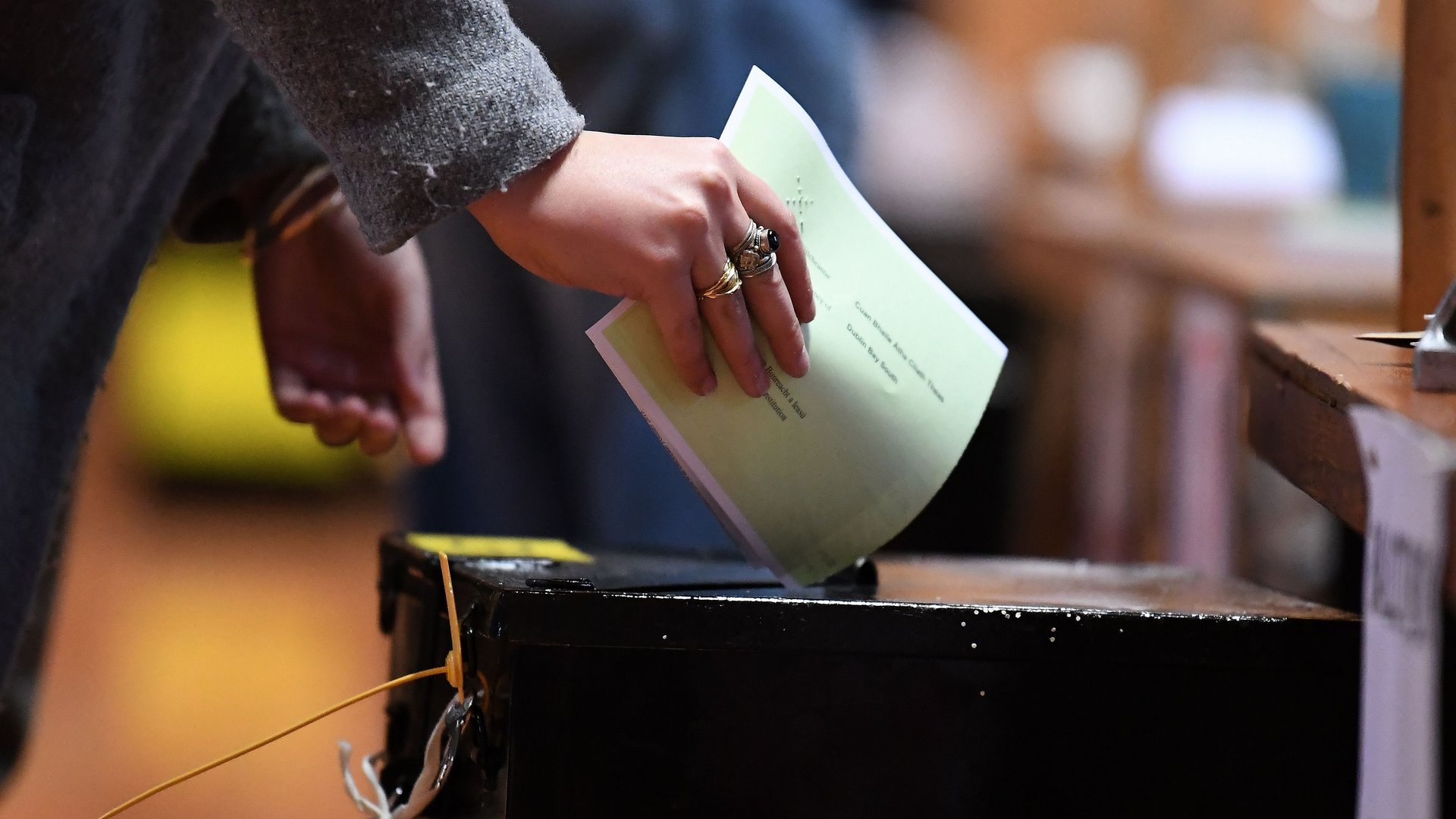Exit polls show Ireland has voted to remove blasphemy laws from their constitution
Ireland has voted by a significant majority in favor of removing the crime of blasphemy from its constitution, according to exit polls today (Oct. 27).


Ireland has voted by a significant majority in favor of removing the crime of blasphemy from its constitution, according to exit polls today (Oct. 27).
The country voted in a referendum meant to determine whether parliament should overturn both a 2009 law and a clause in the constitution that prohibits saying or printing blasphemous matter against any religion, and makes it a criminal offense, punishable by up to €25,000 ($28,532).
An exit poll by the Republic of Ireland’s national broadcaster, RTÉ, showed that 71.1% supported the change, with 26.3% voting against. (1.8% said they had not voted on the blasphemy referendum, and 0.8% said they did not know or refused to indicate which way they voted.)
Along with the blasphemy referendum, Irish people also voted on their presidential candidate, and early exit polling suggests that the incumbent, Michael Higgins, won by a landslide. Official counting of the votes begins today.
If official results confirm the exit polls, this will be the latest in a series of social and political reforms that have shaken the majority-Catholic country in recent years, further weakening the role of religious conservatism there. The country also legalized same-sex marriage in 2015; last year elected prime minister Leo Varadkar, the son of an Indian immigrant who came out as gay in 2015; and voted in a landslide referendum last May to open a path towards the legalization of abortion.
“This vote is more than symbolic—it is a very important step toward insuring freedom of religion or belief and freedom of expression for everyone in Ireland,” Tenzin Dorjee, the chair of the US Commission on International Religious Freedom, told Quartz. “Our hope is that other countries will follow Ireland’s example and remove blasphemy laws from their books as well.”